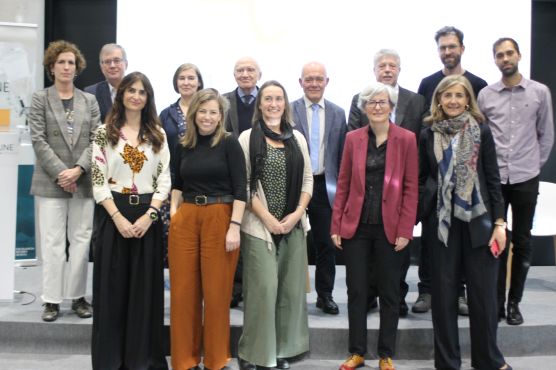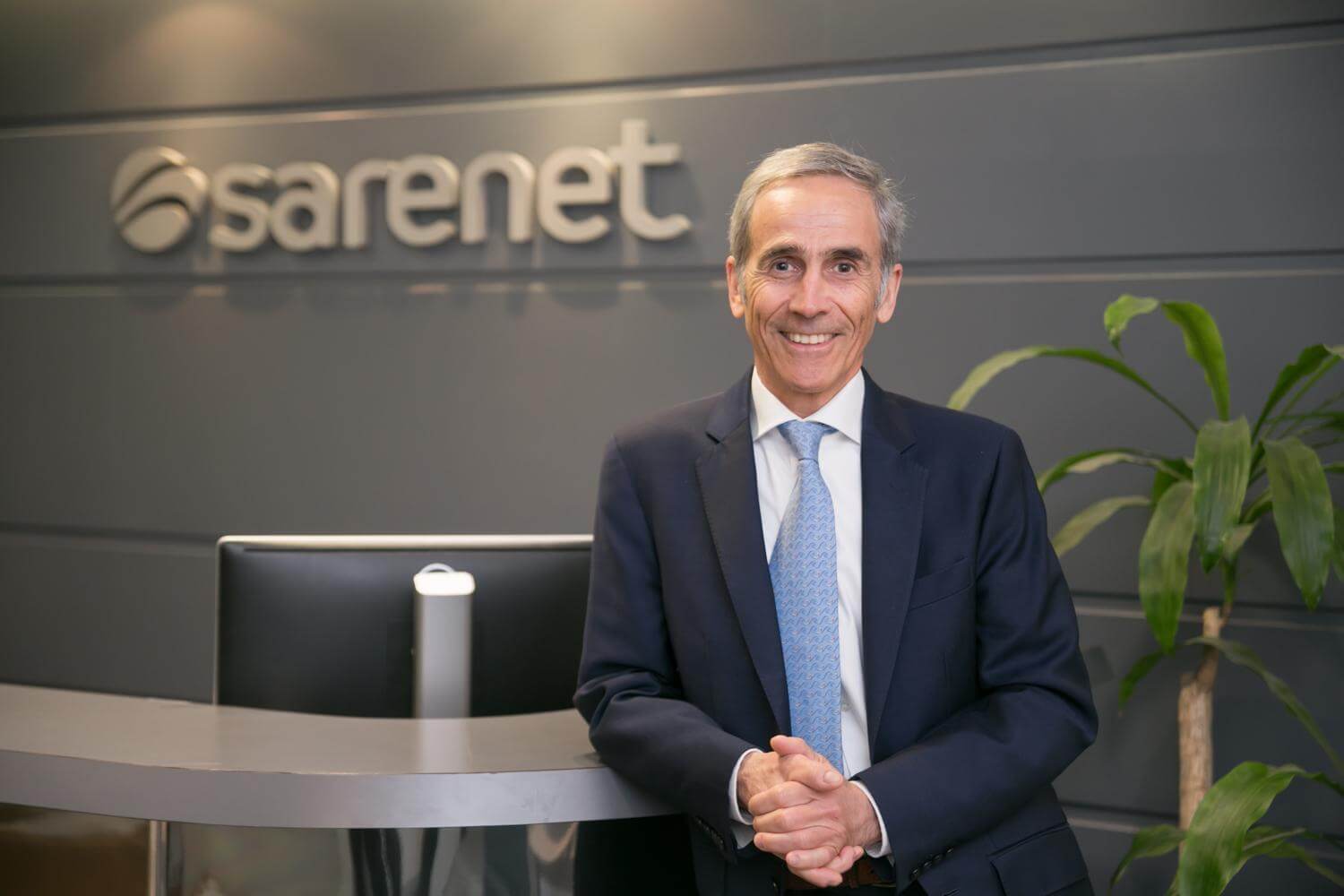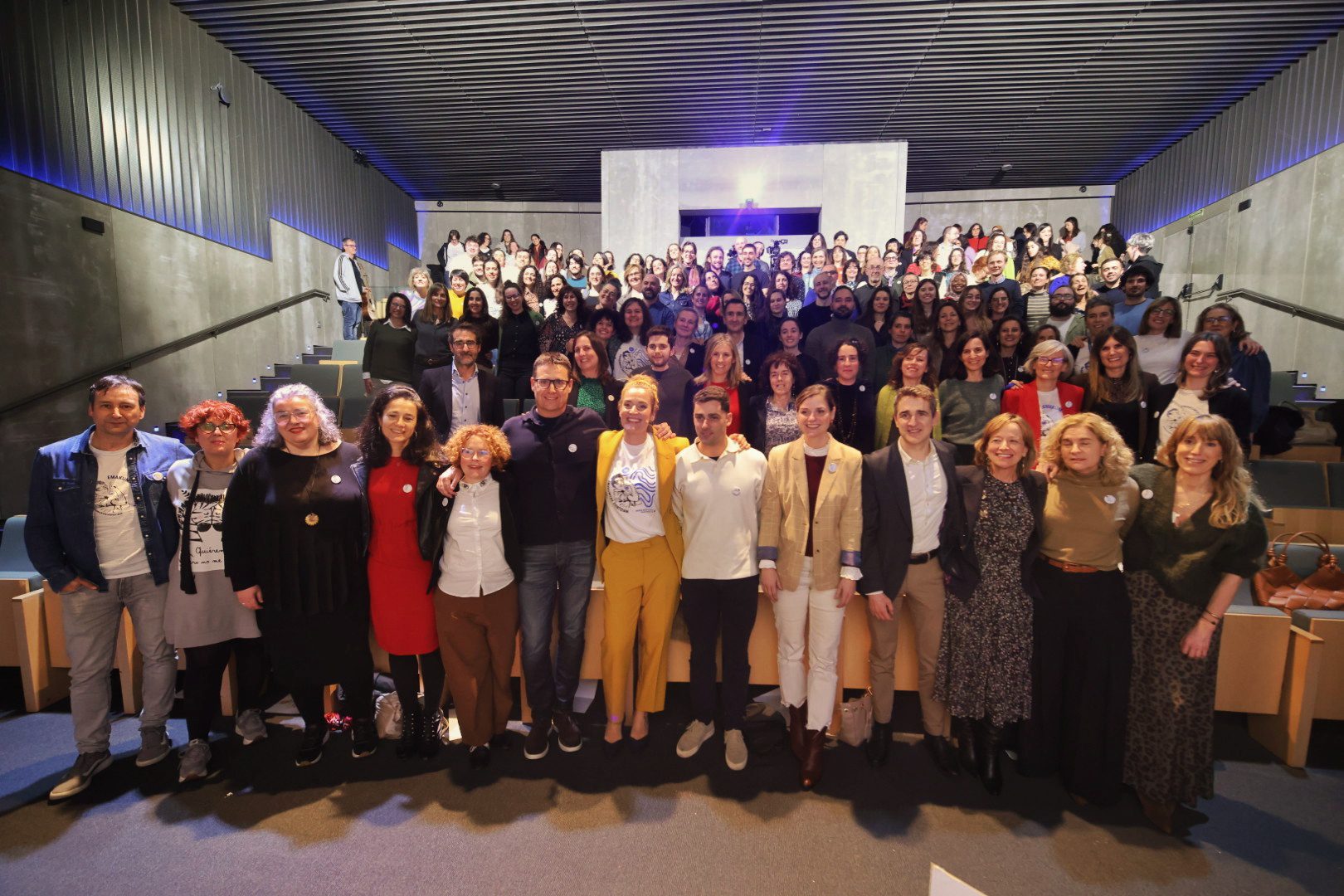CIC bioGUNE celebrates its twentieth anniversary

More than 500 researchers from more than 35 countries have worked at CIC bioGUNE over the last twenty years, positioning the centre as an international benchmark in cutting-edge research in Life Sciences
The CIC bioGUNE research centre – a member of the Basque Research & Technology Alliance, BRTA – officially celebrated its 20th anniversary today with an event that served to recognise its position as an international benchmark in cutting-edge research at the interface between chemistry, structural, molecular and cellular biology and biomedicine.
The commemorative event, held at its headquarters on the Zamudio/Derio Campus of the Euskadi Technology Park, was attended by representatives of various institutions, including academic, scientific and technological agents, and included speeches by José Mato, Director General of CIC bioGUNE, at the opening and Juan Ignacio Pérez Iglesias, Basque Government Minister of Science, Universities and Innovation, at the closing ceremony.
In these twenty years, CIC bioGUNE has established itself as a leading centre on the international scientific scene as a generator of advanced knowledge in the field of life sciences. The centre’s research is focused on the study and understanding of the molecular bases of disease, with the ultimate aim of developing new concepts and methodologies that contribute to the welfare of society, promoting the translation of basic research to achieve better diagnosis, prognosis and therapy of the disease. Its activity has resulted in the presentation of hundreds of scientific publications with international repercussions, in the generation of patents and the attainment of competitive resources, and in the creation of companies. The centre’s mission also includes collaboration with Basque, national and international, public and private entities and institutions, and, most especially, the availability of the knowledge generated, technological equipment and scientific personnel at the service of the scientific community and the business fabric of the Basque Country.
José Mato, general director of CIC bioGUNE, pointed out in his speech that, ‘this twentieth anniversary not only celebrates the achievements that have positioned
CIC bioGUNE as a benchmark in scientific research at national and international level, but also encourages us to project ourselves into the future with a clear, ambitious and transformative vision. It will be the new generation of scientific leaders, with their ability to innovate, collaborate and adapt to emerging challenges, who will take on the responsibility of making strategic decisions that will keep us at the forefront of knowledge and allow us to continue contributing significantly to scientific and social progress’.
Since its inauguration in January 2005, more than 500 researchers from over 35 countries have carried out their research work at CIC bioGUNE.
The centre, directed by José Mato since its inception, with the participation of Jesús Jiménez Barbero as scientific director since 2014, has received 272 million euros in funding over the last twenty years, of which 139 million have come from different programmes of the Basque Government, mainly from the Department of Industry, Energy Transition and Sustainability, and also from the Departments of Education and Health, and 14 million from the Provincial Council of Bizkaia. More than 50 million euros have been obtained thanks to the success in competitive calls for projects from the General State Administration. More than 15 million have been obtained from international projects, including 6 StG, CoG and AdG projects from the European Research Council (ERC), and more than 53 million have come from turnover, contributions from partners and private entities. At the same time, the centre has contributed to the generation of wealth in its environment, contracting with Basque companies to the value of more than 81 million euros and, in turn, with a turnover via service provision contracts of more than 16 million. It has also participated in the creation of 6 companies.
In the exclusively scientific area, more than 2200 articles have been published in international scientific journals, which have already received more than 60,000 citations. More than 50% of these articles have been written in collaboration with international scientific institutions. More than 60 patents have also been granted.
In the area of training, more than 170 doctoral theses have been completed to date, while more than 90 are currently in progress. In addition, more than a hundred young people have completed master’s degrees at the centre and vocational training placements. In addition, the centre has hosted dozens of students from the Erasmus and Da Vinci exchange programmes.
Singular Scientific and Technical Facility (ICTS)
Among the scientific-technological equipment at CIC bioGUNE is the Nuclear Magnetic Resonance (NMR) platform, certified as a State Singular Scientific and Technical Facility (ICTS). NMR is an advanced and versatile technique that makes it possible to study molecular properties in a detailed and precise manner. This technique has very diverse applications, including chemistry, materials science, food science, biotechnology and biomedicine. It is in this field that CIC bioGUNE’s research is framed, including the design of new drugs and the search for biomarkers that can be related to pathological conditions.
The recent acquisition of a 1 GHz spectrometer places CIC bioGUNE at the forefront of European NMR research, focused on personalised and precision medicine. This instrument, together with those already existing at the centre, contributes to the development, at the highest level, of research into the design of new drugs, the search for biomarkers for the diagnosis of rare diseases, both in neonates and adults, prevalent diseases such as cancer, liver diseases and bacterial and viral infections, the detailed characterisation of the ageing process and the prognosis of various pathologies. This research is carried out in collaboration with numerous public and private agents and institutions from the BRTA and the Basque Science and Technology Network, both national and international.
New generation of scientific leaders
During the morning session, a colloquium was held on the ‘State of science in Spain and the Basque Country’ and a debate on the ‘Challenges of science from the perspective of the new generations’, in collaboration with the Health Sciences Foundation.
The colloquium on the ‘State of science in Spain and the Basque Country’, moderated by the scientific director, Jesús Jiménez Barbero, was attended by Nazario Martín, member of the Royal Academy of Exact, Physical and Natural Sciences; Carlos Diéguez, president of the biomedicine scientific area of the State Research Agency (AEI); Fernando Cossío, scientific director of Ikerbasque; and Laureano Simón, CEO and founder of ONCOMATRYX.
In the afternoon, at 14:30, a round table discussion was held, moderated by the director general, José M Mato, ‘Challenges of science from the perspective of the new generations’ with the participation of researchers who form part of a new generation of scientific leaders in the Basque Country and Spain. Participants included Aitziber López Cortajarena, CIC biomaGUNE-Nanobiotechnology; Arkaitz Carracedo, CIC bioGUNE- Preclinical Oncology; Lucy Anne Parker, Miguel Hernández University-Public Health (epidemiology); María Mittelbrunn, Severo Ochoa Molecular Biology Centre (CSIC-UAM)- Immunometabolism and Ageing; and Javier Santos, Pompeu Fabra University- Synthetic Biology. This round table is part of the series coordinated by José Mato, trustee of the Health Sciences Foundation, which aims to find out what biomedical research may have in store for us in the near future through interviews with some of the most prestigious young figures in fields such as chemistry, biology, medicine, mathematics and physics.




